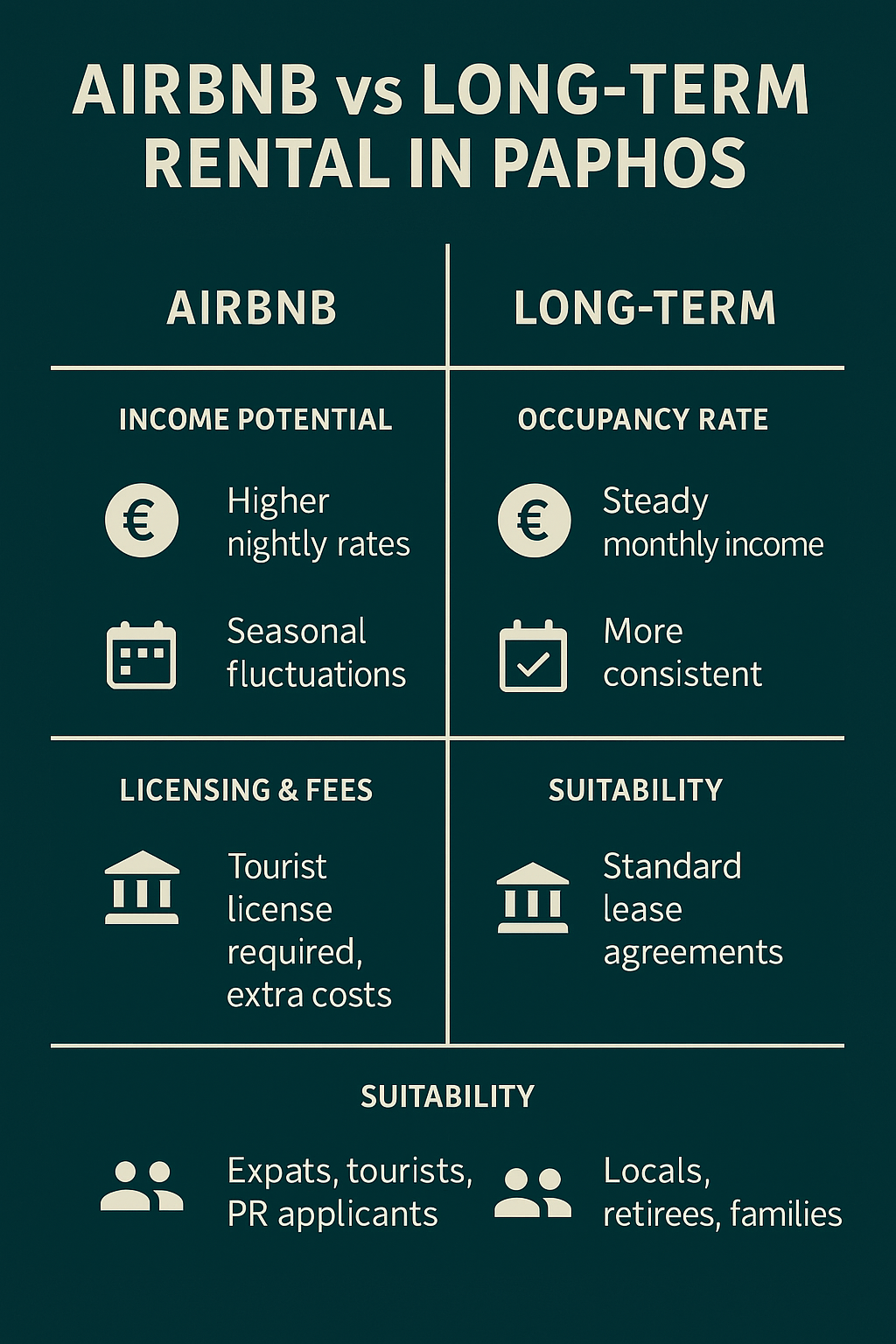Investing in property in Paphos has become one of the most attractive opportunities in Cyprus, thanks to the city’s booming tourism sector, stable economy, and rising demand from expats and students. If you’re considering renting out your property, you’ll face an important choice: long-term rental vs short-term/Airbnb rental.
In this guide, we’ll compare both strategies so you can decide which best fits your goals.
Long-Term Rentals in Paphos
Advantages:
Steady monthly income with lower vacancy risk
Less property management required compared to Airbnb
Attracts expats, students, and digital nomads looking for stability
Rental contracts often 1–3 years
Yields:
Average gross yield: 4–7% per year
Higher demand near schools, universities (AUB), and central Paphos
Considerations:
Lower flexibility in adjusting rent prices
Rental control regulations apply in some areas
Short-Term Rentals (Airbnb/Booking)
Advantages:
Higher nightly rates — especially in summer season
Ideal for holiday apartments and villas near the sea
Flexible use: you can block dates for your own stay
Strong demand from tourists year-round (especially May–October)
Yields:
Average gross yield: 10–17% per year (depending on location and occupancy)
Best performance near Kato Paphos, Coral Bay, and the upcoming Marina
Considerations:
Requires active management (check-ins, cleaning, reviews)
Must register with the Cyprus Deputy Ministry of Tourism and obtain a license
Occupancy depends on tourism cycles
Which Is Better for You?
Investors seeking stability → Long-term rental
Investors seeking higher returns → Airbnb rental
Hybrid strategy → Some owners combine long-term contracts (winter) with short-term rentals (summer)
Key Takeaways
Long-term rentals: steady income, lower risk, 4–7% yields.
Airbnb rentals: higher income potential, 10–17% yields, but require more effort.
Location matters: beachfront, Old Town, and near future Marina are top spots.




